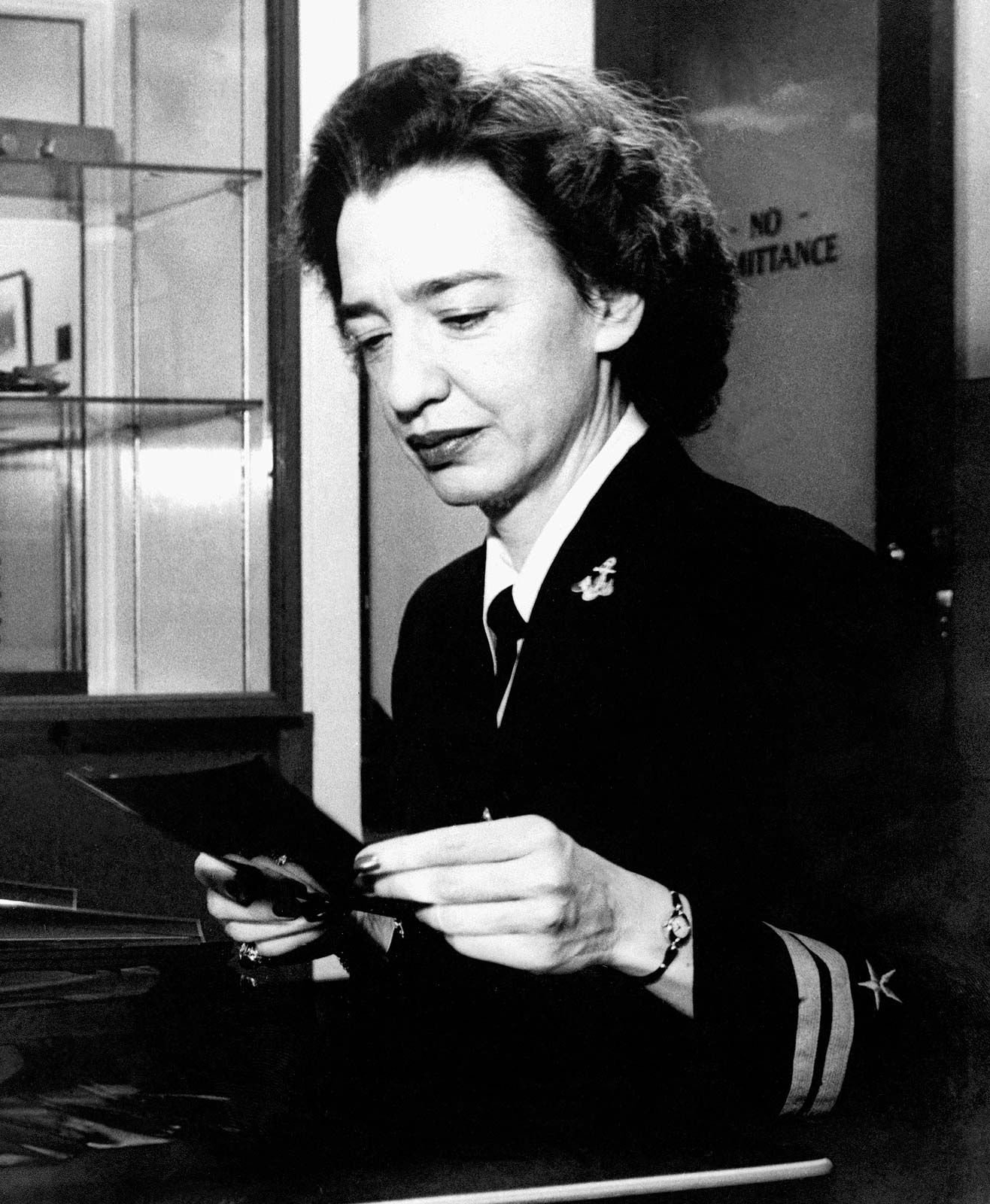Why “Hopper?”
Admiral Grace Hopper was a mathematician and one of the world’s first computer programmers. She believed it was possible for people to give computers instructions in plain English, and in 1952 developed the compiler, which acted as the translator from English to machine language and ushered in the modern age of digital computing. In the same way Grace Hopper saw she could facilitate non-mathematicians writing code, Hopper Health facilitates health communication and outcomes for neurodivergent folks in a world that’s not (yet) built for us. You might notice a nod to this inspiration in the circuit design of our logo!
Our values
-
We are radically transparent with each other and our members about our successes and failures. Moving toward equity in workplaces and healthcare requires safe, open communication and equitable access to information.
-
We require direct communication and respect each other enough to give thoughtful feedback about situations and impact, not personalities. We don’t waste energy on trying to guess others’ intentions.
-
No one should be expected to be a hero just to do their job. We rely on each other for support and expertise, and we prioritize addressing problems before heroics are required.
-
People know their bodies, lives, and context, and are the best experts on themselves. We must learn from lived experiences and continually improve our practice and product based on what we learn.
Our Founder’s Story
Katya Siddall-Cipolla (she/they) is the founder and CEO of Hopper Health. As an autistic + ADHD person with co-occurring chronic health conditions, she is building Hopper to not only support better health, but also to be a safer place for neurodivergent people to work.
Prior to founding Hopper, Katya was a corporate Vice President for product development and innovation at a Blue Cross Blue Shield health plan, where she led a wide range of initiatives including expanding coverage for gender-affirming procedures, quantifying maternal health equity disparities in the region, and implementing cost comparison tools that improved the experience of getting care for a million local members.
Katya’s formal education was in Biological Anthropology at Northwestern University, where she specialized in paleo and forensic anthropology and conducted comparative anatomy research at the Smithsonian’s National Museum of Natural History and the Turkana Basin Institute in Ileret, Kenya. Prior to her university education, Katya was a combat medic in the US Army.
Katya’s special interests are reading, dance, interior design and use of space, anatomy, and the history of science. She lives with her family and two cats in Washington, DC, where you can find her seeing a show at the 9:30 Club or grabbing a pizza at Stellina Pizzeria.




